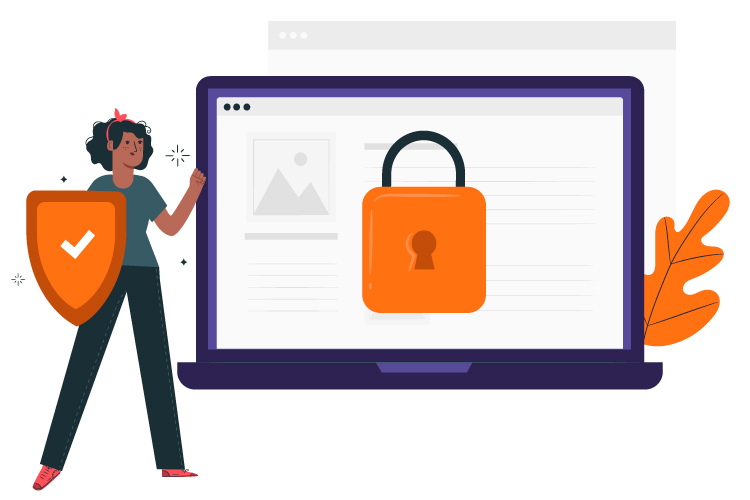SSL Provider Company
The Key to Secure Online Communication
In today's digital age, ensuring the security of online communication and data transmission is paramount. SSL (Secure Sockets Layer) encryption plays a pivotal role in safeguarding sensitive information exchanged between web servers and browsers. This article explores what SSL is, why it's crucial, and how it works to protect your online activities.
1. What is SSL?
- Encryption Protocol: SSL is a cryptographic protocol that encrypts data transmitted between a web browser and a server, ensuring privacy and integrity.
- Secure Communication: It establishes a secure connection by encrypting data such as credit card numbers, login credentials, and other sensitive information.
2. Importance of SSL
- Data Protection: Encrypts data to prevent interception by unauthorized parties, safeguarding against eavesdropping and data theft.
- Trust and Credibility: Displays a padlock icon and "https://" in the URL, signaling a secure connection to users, enhancing trust and credibility.
- SEO Benefits: Search engines like Google prioritize secure websites in search rankings, boosting visibility and traffic.
3. Components of SSL
- SSL Certificate: Issued by a Certificate Authority (CA), it verifies the authenticity of the website and encrypts data transmitted between the server and client.
- Public and Private Keys: Facilitate encryption and decryption of data. The public key encrypts data, while the private key decrypts it, ensuring secure communication.
4. Types of SSL Certificates
- Domain Validated (DV) Certificates: Verify domain ownership, offering basic encryption suitable for blogs and informational websites.
- Organization Validated (OV) Certificates: Authenticate the organization's identity and domain ownership, ideal for businesses and e-commerce sites.
- Extended Validation (EV) Certificates: Rigorous validation process, displaying the organization's name in the browser's address bar, indicating the highest level of trust.
5. SSL Implementation
- Choose a Certificate: Select an appropriate SSL certificate based on your website's security needs and validation requirements.
- Purchase and Install: Obtain an SSL certificate from a trusted CA and install it on your web server.
- Configure HTTPS: Configure your website to use HTTPS to ensure all traffic is encrypted and secure.
6. Benefits Beyond Security
- Improved User Experience: Users feel more secure and are more likely to engage with your website when they see the padlock icon and HTTPS.
- Compliance: Many regulations and standards (e.g., GDPR, PCI-DSS) require websites to use SSL to protect user data and maintain compliance.
- Faster Website Speed: HTTPS can improve website performance due to HTTP/2 support and better caching mechanisms.
7. Maintenance and Renewal
- Regular Updates: Keep SSL certificates updated and renew them before expiration to maintain continuous protection.
- Monitor Security: Use tools to monitor SSL/TLS configurations for vulnerabilities and ensure optimal security settings.
SSL is not just about encryption; it's about trust, security, and enhancing the overall user experience. By implementing SSL certificates on your website, you not only protect sensitive information but also demonstrate your commitment to data security and user privacy. Whether you're running a personal blog or managing an e-commerce empire, SSL is a fundamental tool for securing online transactions and building trust in the digital marketplace.
Understanding SSL empowers website owners to prioritize security and protect their users' sensitive information effectively. As cyber threats evolve, SSL remains a cornerstone of online security, ensuring safe and encrypted communication across the internet.
